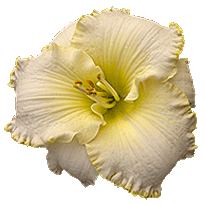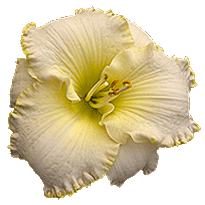




The short, unequivocal answer to that is:
First choice: Whenever practical or possible, you should purchase your daylilies from the hybridizer who registered and introduced them!
Second choice:If the hybridizer that introduced the daylily that you want is out of stock, either wait until his/her stock has been replenished, or seek out another hybridizer that has this daylily available from his/her gardens.
- The hybridizer has worked indescribably hard, over a period of years, to produce this beautiful daylily that you enjoy so much. He or she certainly deserves the financial benefits of its sale, far more than some large buy-and-sell retailer.
- No one is more familiar with both the good traits and/or limitations of a particular daylily cultivar. He/she can advise you in great detail relative to its purchase.
- Many hybridizers will include gift or bonus plants with your order – additional daylilies, no additional charge. Some will let you select your own bonus plants, others do not. This varies among hybridizers and is not something you should “expect” from every hybridizer or with every order.
- Many hybridizers will guarantee their daylilies.
- Hybridizers tend to ship bigger, stronger daylily fans than mass resellers do
- Daylily hybridizers often send multiple fans of the daylily you order, even though it was listed, ordered, and priced as single fans. This varies among hybridizers and is not something you should “expect” from every hybridizer or with every order.
- Most hybridizers offer collections of their introductions at attractively discounted prices. Maybe you can team up with a friend and share in the purchase of an entire collection.
- Although daylily hybridizers are competitive in the market place, they nonetheless share a great deal of information with each other, including how well various daylily cultivars perform in various geographic locations throughout the country.
We suggest that you locate a hybridizer as near to where you live as possible, that way you can visit his/her gardens, see the daylilies right there in his/her fields, and eliminate all the potential climatic problems that can ensue when buying from hybridizers who are located in an extremely different climatic zone than yours.
Early on, when we first started out in daylilies, we, like so many people, shopped price.“Why,” we asked ourselves, “pay more to so-and-so hybridizer for his daylily when we can get the same one from so-and-so reseller for less money?” We learned our lesson the hard way. Today, we purchase exclusively from the original hybridizer, unless he/she is sold out, in which case we will either wait for his stock to increase, or seek out another hybridizer who might have that variety in his garden.
The bottom line: it’s not the price that matters; it’s the value, quality, and service, as well as the moral value of supporting the hybridizers who work long and hard to bring us their amazing daylilies.
WHERE NOT TO PURCHASE YOUR DAYLILIES:We recommend that you avoid purchasing tissue-cultured daylilies. Without going into a detailed discussion of how tissue culturing is done, it is a process whereby cells taken from a particular daylily are grown in more-or-less test tube conditions, allowing for large numbers to be reproduced inexpensively. In short, it amounts to imperfect cloning.
I characterize it as “imperfect” cloning because reports from people who have tested these tissue cultured plants in their gardens indicate that all too often they don’t perform nearly as well as the original plants, specifically in regard to vigor, increase, cold hardiness, and bud count. In some cases the bloom itself has lost color, size, or texture from that of the original.
Of course those who deal in tissue-cultured daylilies will deny these claims, and there is not, to my knowledge, any scientific research on the issue. Bottom line: “Caveat Emptor,” let the buyer beware!
How do you distinguish a tissue cultured plant from a non-tissue cultured one? Well, first of all, the phrase “field grown” is used to indicate that the plant has not been tissue cultured. Unfortunately, this term is not very useful, and often simply not accurate. Furthermore, there are no controls in place or proofs required to validate anyone’s claim that a given daylily is not from tissue culture. So a claim that a particular daylily plant is “field grown” is just that, a claim.
Clues that it might be tissue cultured:
1/ Is this variety widely available, in mass quantity? i.e. available from the large mail-order firms, and from a variety of garden centers and nurseries. If so, it most likely has been tissue cultured. While some daylilies do reproduce naturally at a substantial rate, it’s neither fast enough nor economical enough for most of the large suppliers, unless they use tissue culture.
2/ Is it a recently introduced variety that is offered for sale at a price well below what hybridizers are asking for it? If it is, think twice. On the other hand, the price may not be reduced all that much if the dealer is trying to capitalize on the higher price of the naturally grown specimens.
Next Article - Climate Considerations for Daylilies
Back to Article Index - Daylily Article Index
For Reference - Glossary of Daylily Terms

| Home Page | Our Daylilies | Slides and Videos | Daylily Cultivation Article Index |
| Information Center| Site Map | Offsite Links |
Internet Explorer 5+
Mozilla Firefox 2+
(You can download either of the browsers listed above by clicking on their name link)







